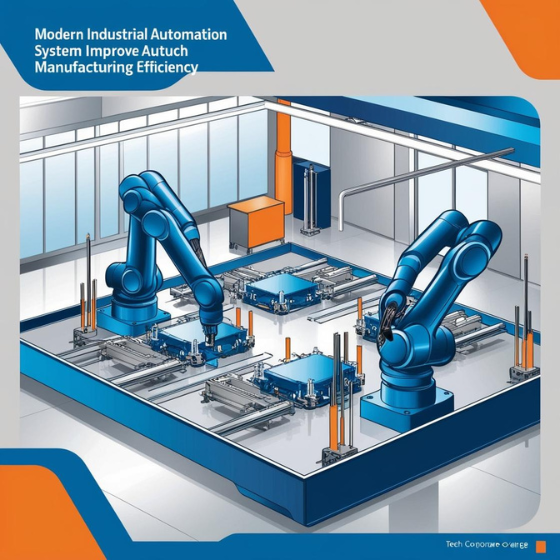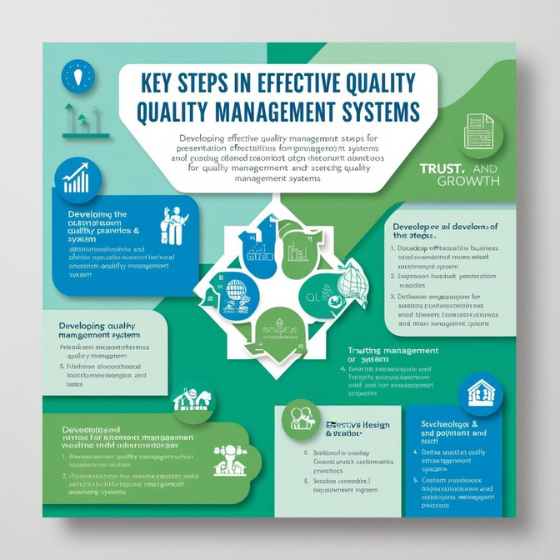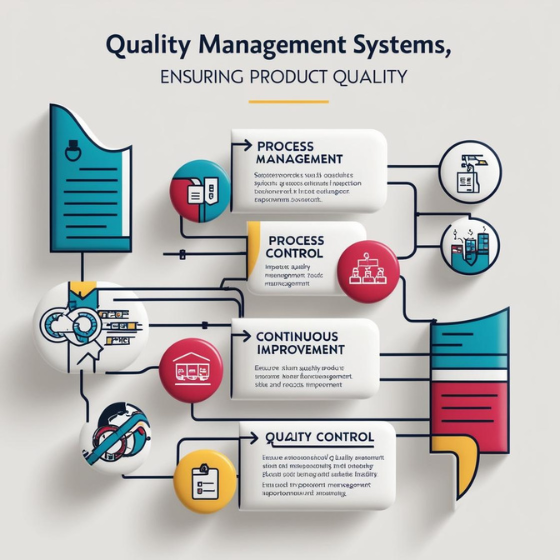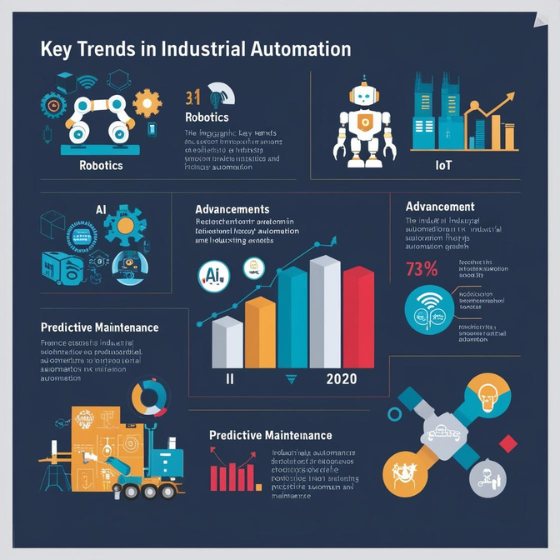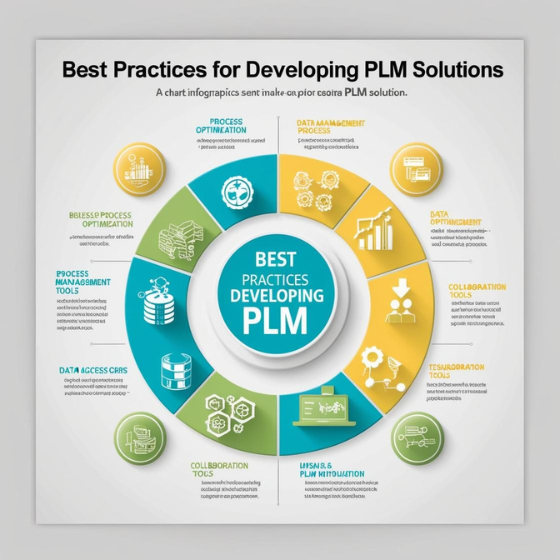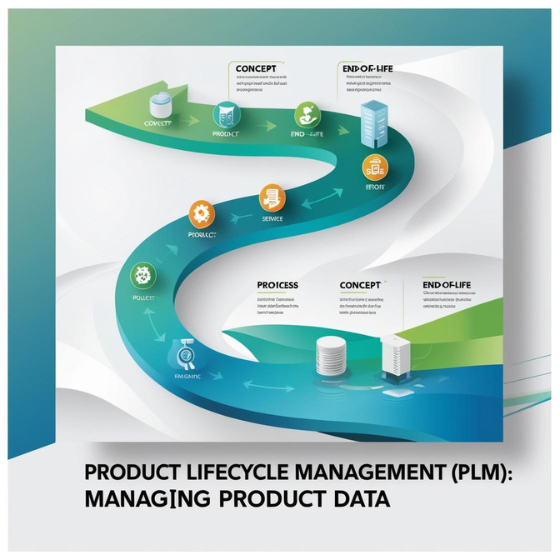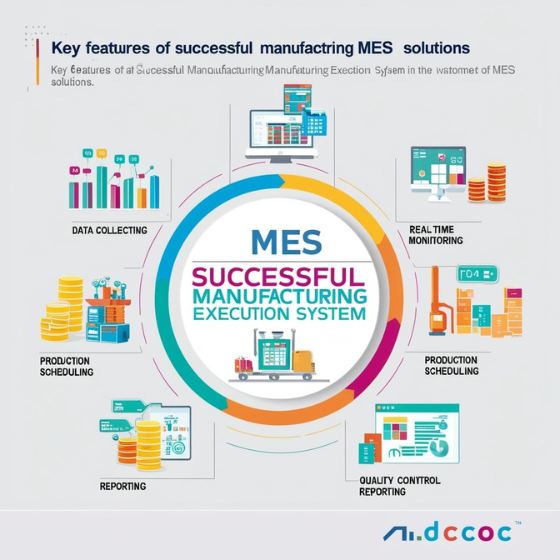Industrial Automation: Improving Manufacturing Efficiency
Introduction
Did you know that industrial automation can increase manufacturing productivity by up to 30% while reducing operational costs? In today’s fast-paced manufacturing environment, businesses face increasing pressure to optimize processes, reduce waste, and improve product quality. Industrial automation offers a transformative solution, leveraging advanced technologies like robotics, IoT, and AI to enhance efficiency and scalability.
This blog delves into how industrial automation improves manufacturing efficiency, explores key technologies driving this revolution, and provides actionable insights to help businesses embrace automation successfully.
What is Industrial Automation?
Industrial automation involves the use of control systems, machinery, and software to perform manufacturing tasks with minimal human intervention. By automating repetitive and time-consuming processes, manufacturers can focus on innovation and strategic decision-making.
Key Goals of Industrial Automation:
- Enhance productivity.
- Minimize errors and waste.
- Improve workplace safety.
- Reduce operational costs.
Benefits of Industrial Automation in Manufacturing
1. Increased Productivity
Automated systems operate continuously without fatigue, enabling round-the-clock production. This significantly boosts output while maintaining consistent quality.
Example: A consumer electronics company implemented robotic assembly lines, achieving a 40% increase in production capacity.
2. Enhanced Quality Control
Automation ensures precision in manufacturing processes, reducing variability and ensuring that products meet quality standards consistently.
3. Reduced Operational Costs
Though initial investment in automation can be substantial, it leads to long-term savings by minimizing labor costs, energy consumption, and material wastage.
4. Improved Safety
By automating hazardous tasks, manufacturers can reduce workplace injuries and create a safer environment for employees.
Example: Automated welding robots in the automotive industry eliminate human exposure to intense heat and harmful fumes.
5. Flexibility and Scalability
Modern automation systems can be easily reconfigured to adapt to new product designs, making them ideal for manufacturers catering to diverse markets.
Technologies Driving Industrial Automation
1. Robotics
Robotic systems are revolutionizing manufacturing by performing tasks with unparalleled speed and accuracy.
Applications in Manufacturing:
- Assembly and disassembly.
- Material handling.
- Packaging and palletizing.
2. Internet of Things (IoT)
IoT-enabled devices facilitate real-time monitoring and data sharing across production lines.
Benefits of IoT in Automation:
- Predictive maintenance to reduce downtime.
- Real-time insights into production metrics.
- Enhanced decision-making through data analytics.
3. Artificial Intelligence (AI)
AI algorithms enable automation systems to learn from data, optimize processes, and make intelligent decisions.
Example: AI-powered vision systems detect defects in products during assembly, improving quality assurance.
4. Programmable Logic Controllers (PLCs)
PLCs are essential for controlling machinery and ensuring smooth execution of automated tasks.
5. Autonomous Mobile Robots (AMRs)
AMRs are widely used for logistics and material transportation within factories, optimizing workflow efficiency.
Best Practices for Implementing Industrial Automation
1. Conduct a Thorough Needs Assessment
Identify the processes that can benefit most from automation and evaluate their potential ROI.
2. Start Small
Begin with automating a single process or production line, then scale as you gain confidence and expertise.
3. Invest in Employee Training
Automation should complement human efforts, not replace them. Train employees to manage and maintain automated systems effectively.
4. Partner with Reliable Solution Providers
Work with trusted automation experts who can design and deploy solutions tailored to your business needs.
5. Monitor and Optimize
Continuously monitor the performance of automated systems to identify areas for improvement and optimize operations.
Challenges in Industrial Automation
1. High Initial Costs
Implementing automation requires significant upfront investment, which can be a barrier for small manufacturers.
2. Integration with Existing Systems
Ensuring seamless compatibility with legacy systems can be complex and time-consuming.
3. Workforce Resistance
Employees may fear job loss due to automation. Transparent communication and upskilling programs can mitigate these concerns.
4. Cybersecurity Risks
Automated systems are susceptible to cyberattacks. Implement robust security measures to safeguard data and operations.
Future Trends in Industrial Automation
1. Edge Computing
Edge computing enables faster data processing by reducing latency, making automation systems more responsive.
2. Collaborative Robots (Cobots)
Cobots work alongside humans, enhancing productivity while maintaining flexibility and safety.
3. Smart Factories
Smart factories leverage IoT, AI, and digital twins to create self-optimizing production environments.
4. Green Automation
Automation technologies are increasingly being designed to reduce energy consumption and support sustainable manufacturing practices.
Conclusion
Industrial automation is no longer a luxury but a necessity for manufacturers striving to stay competitive in a rapidly evolving landscape. By enhancing productivity, ensuring quality, and reducing costs, automation enables businesses to achieve operational excellence and meet growing market demands.
At Sodio, we specialize in providing cutting-edge automation solutions tailored to your manufacturing needs. Whether you’re starting your automation journey or looking to upgrade, we’re here to help.
Ready to revolutionize your manufacturing processes? Contact Sodio today to explore our industrial automation services.
